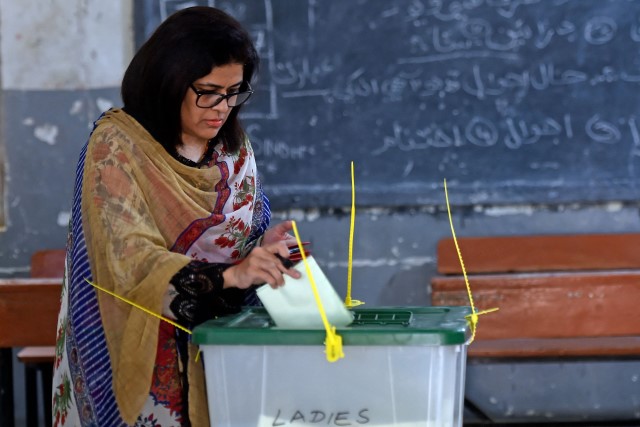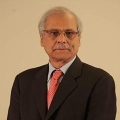
REGISTER To Join The WEBINAR
UNITED STATES: Pakistan’s upcoming elections marks a pivotal juncture for the country and broader South Asia. Against the backdrop of enduring political challenges and a relentless economic crisis, the discourse on governance, policies, and the imperative for reforms spark several pressing questions: Will these elections reshape the delicate balance between civilian governance and military influence? Can new political leadership navigate Pakistan towards stability and progress amid the tumultuous currents of contemporary geopolitics? Which familiar political dynamics will persist?
Join the Asia Society Policy Institute on February 12 as we explore the aftermath of Pakistan’s elections, seeking answers to these questions. The panelists will analyze crucial election results, considering their potential impact on domestic and foreign policies. We’ll assess how these outcomes could reshape international relations, influence regional stability, and redefine Pakistan’s global role.
The virtual discussion, moderated by Farwa Aamer, Director of South Asia Initiatives, Asia Society Policy Institute, will feature: Arifa Noor, Journalist and Host of NewsWise show on the Dawn News television channel, and Zahid Hussain, Award-Winning Journalist, Author of Frontline Pakistan: The Struggle with Militant Islam, and former correspondent for The Times of London and The Wall Street Journal.
SPEAKERS

Zahid Hussain is an award-winning journalist and author. He is a former correspondent for The Times of London and The Wall Street Journal. He also has covered Pakistan and Afghanistan for several other international publications, including Newsweek, Associated Press, and The Economist. He is a regular columnist for Dawn. Hussain was a Pakistani scholar at the Woodrow Wilson International Centre for Scholars. Washington. D.C (2011-2012). He has also been a visiting fellow at Wolfson College, University of Cambridge (1999), and at the Stimson Center. Washington. D.C (1994). Hussain is the author of Frontline Pakistan: The Struggle with militant Islam (declared book of the year in 2007 by the Wall Street Journal) and The Scorpion’s Tail: The Relentless Rise of Islamic militants in Pakistan. His latest book is titled No Win The Paradox of US-Pakistan Relations in Afghanistan’s Shadow.

Arifa Noor is a leading opinion writer and broadcaster with Pakistan’s Dawn Media Group. Based in Islamabad, she hosts NewsWise on the Dawn News television channel. An hour-long program that runs from Monday to Thursday, News Wise covers politics, human rights, and security issues. She also writes a weekly opinion column for Dawn newspaper. She has over 25 years of experience in print and television. She is the only woman to have headed a bureau of Dawn Newspaper and serve as resident editor. Earlier she also served as editor of the Herald for which she won several awards including the CNN Journalist of the Year and Kurt Schork awards. In 2004, she was the youngest recipient of the Eisenhower Fellowship. She is a graduate of the London School of Economics and holds a Master’s Degree from King’s College London.

Farwa Aamer (moderator) is the Director of South Asia Initiatives at the Asia Society Policy Institute (ASPI) in New York where she oversees the institute’s policy work and projects in South Asia. Before ASPI, Farwa worked at the Stimson Center where she led research on the security, political, and socio-economic dimensions of transboundary river governance in the Himalayan region. Through her work, Farwa has organized and convened high-level Track II dialogues and discussions designed to facilitate greater and intra-regional cooperation on issues and opportunities concerning water, energy, climate change, and sustainable development in South Asia, MENA, and Central Asia. Farwa also worked on highlighting the disproportionate impacts of climate change and water insecurity on women. From 2017 to 2021, Farwa was with the EastWest Institute (EWI) and served as the Director of the South Asia program. At EWI, Farwa worked on promoting non-traditional channels of diplomacy and establishing multi-stakeholder platforms for shared economic, financial, and geopolitical interests by bringing together policy shapers, media influencers, thought leaders, and business experts from within South Asia and across the globe.
